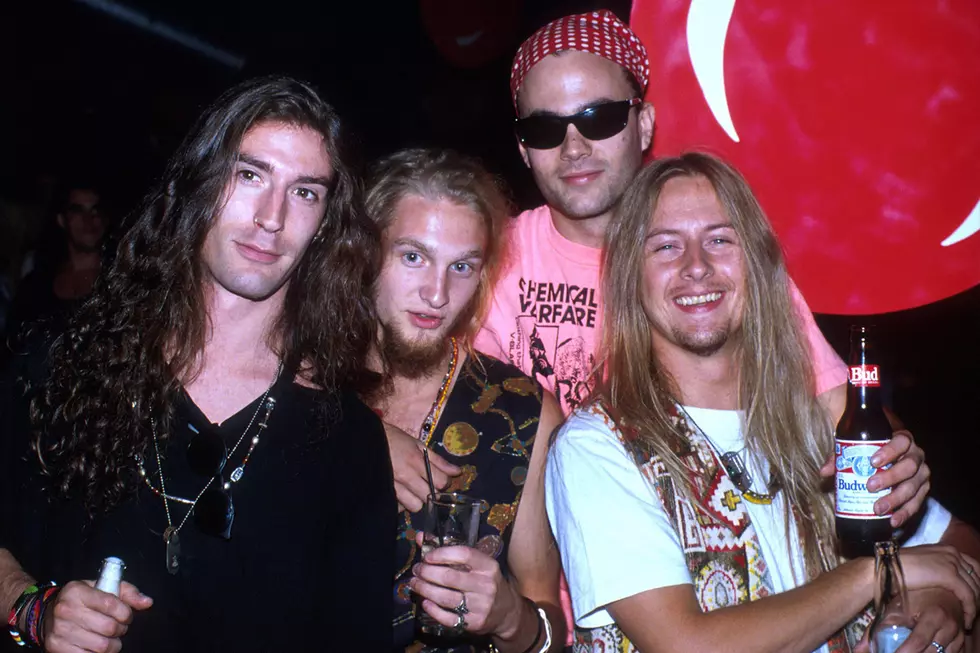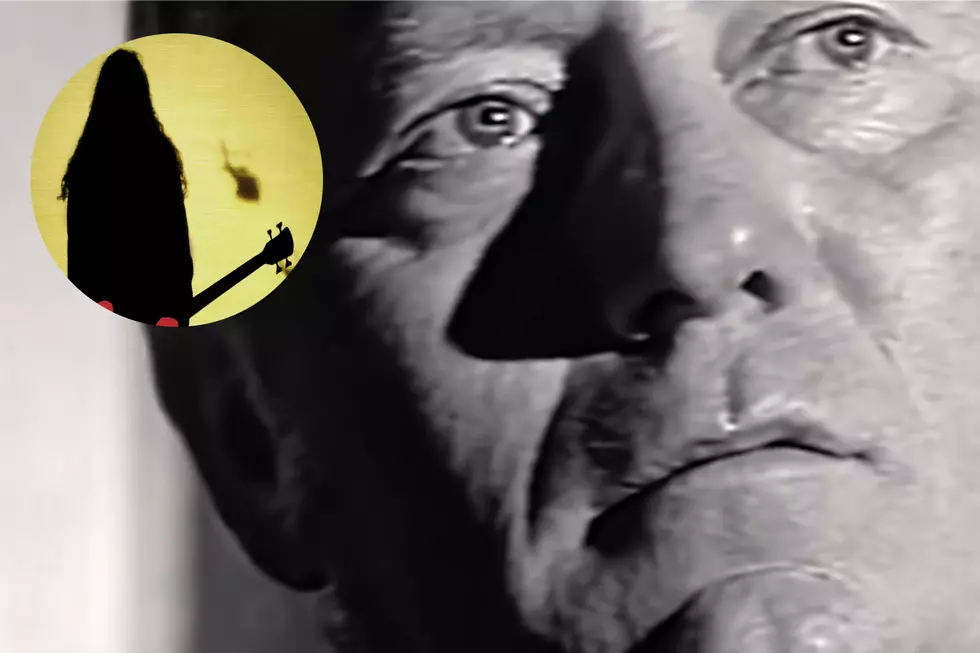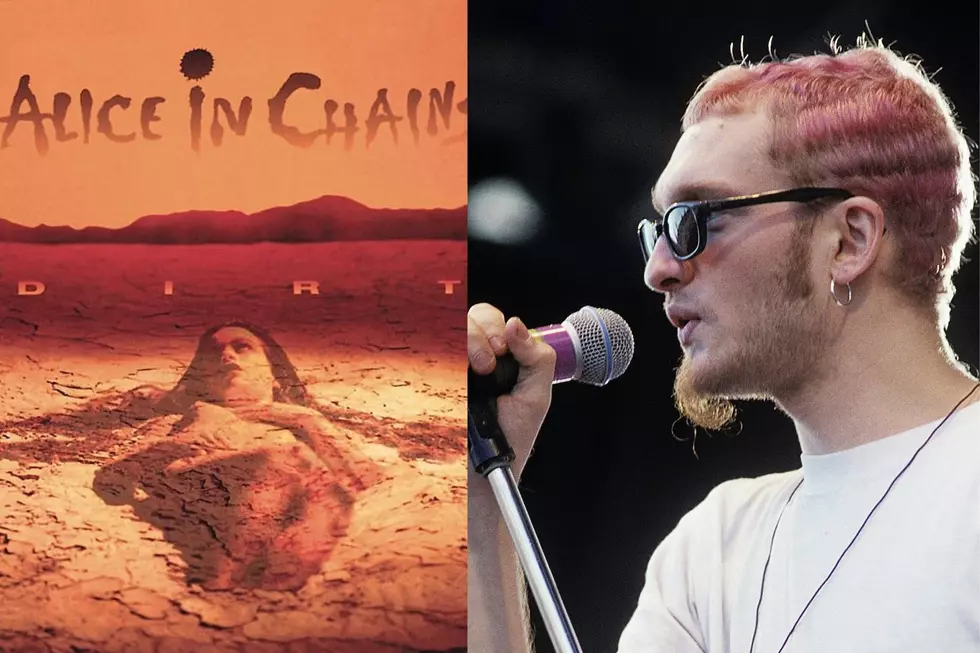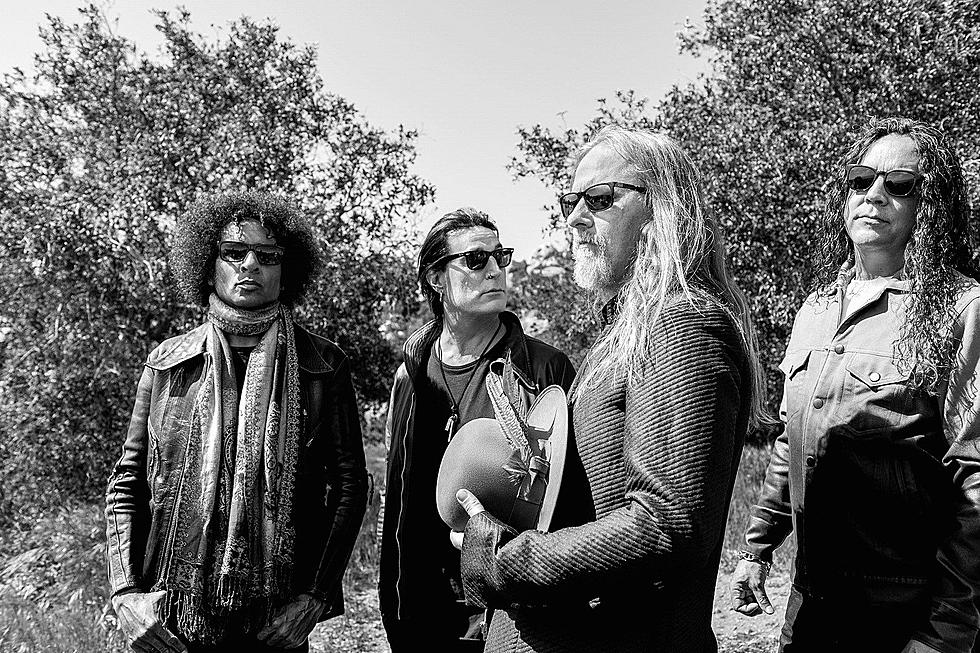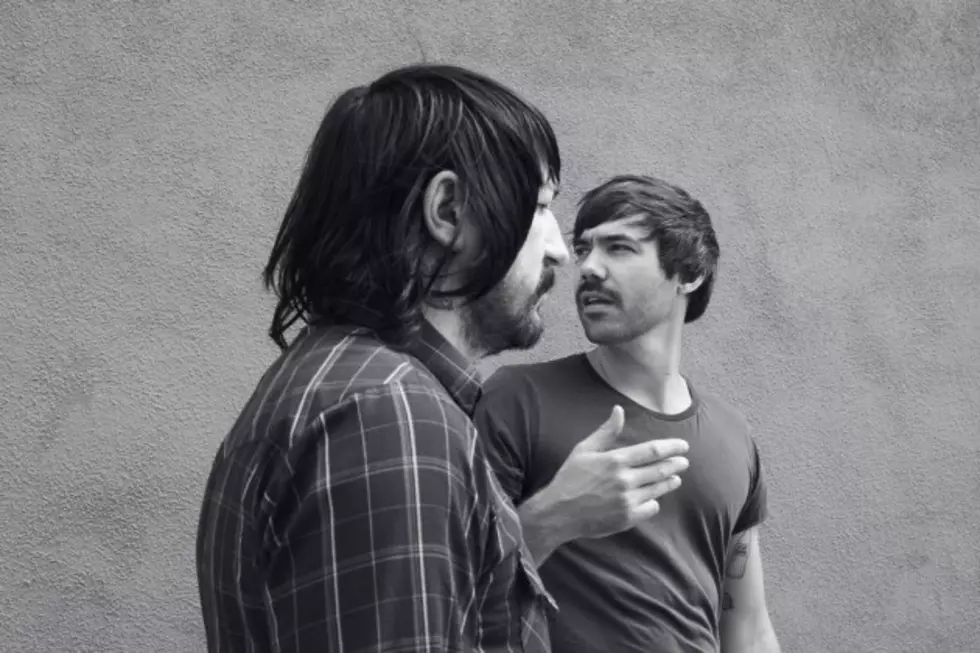
10 Reunited Bands Killing It the Second Time Around
It was either Jean-Paul Sartre or Axl Rose who said, "Nothing lasts forever, even cold November rain," and truer words might never have been spoken (or shrilly sung).
No matter how amazing a band is, it's inevitable that it'll one day come to an end. Whether that end comes after 35 years or three to five months depends largely on how well things go and how much the members can still tolerate each other.
But, in some cases, a band comes back together at some point reinvigorated and with a renewed creativity that leads to some of the best work of their careers. While nobody will forget what they did during their first runs, here we spotlight 10 such bands who came back clearly with unfinished business to take care of:
- 1
Death From Above 1979
Coming together out of Toronto in 2001, bass and drums duo Death From Above 1979 (pictured above) rapidly became poster boys for grimey DIY dance-punk. By 2006, they had released the widely beloved 'You're a Woman, I'm a Machine' and opened for the likes of Nine Inch Nails. Then they abruptly broke up. Five years later, seemingly just as unexpectedly, singer/drummer Sebastien Grainger announced the band would return. On top of playing live to fans ravenous for the reunion, the band released their long-awaited sophomore album, 'The Physical World,' in September 2014.
- 2
The Pixies
Potentially the most influential alternative outfit of the late '80s and early '90s, the Pixies rose out of Boston and gave rise to the decidedly grunge appropriated 'loud-quiet-loud' dynamic. Although they had achieved both critical and commercial success, tension within the band caused frontman Black Francis (a.k.a. Frank Black) to announce on the radio in 1993 (unbeknownst to the other members) that the band was no more. But in 2004, the Pixies performed their first show together in 11 years and have since played massive festivals like Lollapalooza and the Newport Folk Festival. After the departure of bassist Kim Deal last year, the band released three EPs -- their first music without her -- which were compiled onto 2014's full-length, 'Indie Cindy.'
- 3
Alice In Chains
To grunge purists, it's tantamount to blasphemy that Alice In Chains came back in 2005 with a new singer just three years following the death of original and iconic frontman Layne Staley. But AIC had always been just as not -- if not more -- the baby of guitarist/singer Jerry Cantrell than it was of Staley, and Cantrell was far from finished. Joined by vocalist William DuVall, the band went onto release 2009's 'Black Gives Way to Blue' and 2013's 'The Devil Put Dinosaurs Here' -- and they still pack amphitheaters.
- 4
Rival Schools
Possibly the premier post-hardcore supergroup at the Y2K turn, Rival Schools (named after the classic Capcom fighting game) featured Quicksand frontman Walter Schreifels along with alumni of CIV, Youth of Today and Iceburn. They released their debut, 'United by Fate,' in 2001, but subsequently fell apart as members focused on other projects. But absence made their fans' hearts fonder, and the band reassembled in 2008, releasing their official second album, 'Pedals,' in 2011, and their long-lost actual second album, 'Found,' (get it?) in 2013.
- 5
My Bloody Valentine
It's possible that no band is more synonymous with a specific musical genre more than My Bloody Valentine are with shoegaze. Formed in Ireland in 1983, they enjoyed only moderate success until they released their second album, 'Loveless,' in 1991, bringing the band global accolades and a major label record deal with Island. But they didn't release another record by the time they broke up in 1997. More than a decade later, the band reunited for Coachella in 2008 and have been major festival mainstays since. Their third album, 2013's 'm b v,' was widely regarded as a massive triumph.
- 6
Braid
Braid set the bar for earnest Midwestern emo in 1998 with their landmark third album, 'Frame and Canvas,' but after seemingly endless touring and self-imposed pressure, the four members went their separate ways the next year. Despite a summer tour in 2004, they remained inactive until 2011 when the band (essentially legends by that point) revealed they would release new music. 'No Coast,' their first album since 'Frame and Canvas,' was released in July '14.
- 7
Cave In
Initially a legendary metalcore outfit out of Massachusetts during the late '90s, lineup changes and different ideas about their direction led Cave In into more spacey, prog-inspired territory with 2003's 'Antenna' and 2005's 'Perfect Pitch Black.' In 2006, however, the band announced their hiatus which they remained on until 2009, when they came back to hugely popular reunion shows. In 2011, they released their fifth full-length, 'White Silence,' which reached No. 17 on Billboard's Heatseekers chart.
- 8
The Get Up Kids
Hugely important in the second wave emo movement of the mid-'90s, the Get Up Kids were central figures in the influential Lawrence, Kan., scene. Touring with Green Day and Weezer, they eventually became headliners themselves and released the benchmark 'Something To Write Home About' in 1999. Conflict pulled the band apart in 2005, but a re-release of that album brought them back together in 2008. Since then, they released 'There Are Rules' in 2011 and have been hugely popular at signature events like the Bamboozle Festival in New Jersey.
- 9
Failure
While their contemporaries in the SoCal scene of the mid-'90s became wrapped up in rap-rock and nu-metal, Failure focused on intricate and experimental post-hardcore. Despite the fact that 1996's 'Fantastic Planet' would find more appreciation later, sales were abysmal and the band broke up that year. After frontman Ken Andrews and guitarist Greg Edwards found a little bit of success with other projects, they performed their first show together since 1997 in February 2014 and embarked on a reunion tour in the spring. They're expected to release their fourth album in 2015.
- 10
Finch
If you want to get technical about it, this is actually the third time around for California post-hardcore five-piece Finch. Their first time was as a burgeoning early millennial outfit on Drive-Thru Records until they went on hiatus in 2006; their second was an up and down stint between 2007 and 2010; and in 2012, they came back for an anniversary tour that led to the band returning full-time. After a run on Warped Tour in 2013, they released 'Back to Oblivion,' their first full-length since 2005.
More From The Moose 94.7 FM


